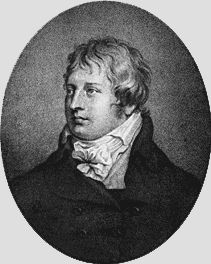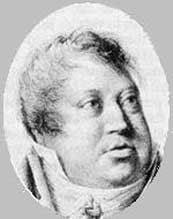

Bohemian composer and keyboard virtuoso. Son of organist and teacher Jan Dussek (1738-1818), he received his early music training as a choirboy at Jihlava (Iglau) and at the Jesuit school at Kutná Hora; at the latter he was also chapel organist. After giving up his intention of becoming a Cistercian monk, he studied in Prague through the patronage of a Count Männer (1776-78). During the 1780s he performed as pianist in the Netherlands, St. Petersburg, Berlin, Kassel, Mainz, Frankfurt, and in Hamburg, where he met C. P. E. Bach. He moved to Paris in 1786, but soon after had to flee the Revolution; settling in London, he gained popularity as a piano virtuoso throughout the 1790s, performing frequently with Salomon and occasionally with Haydn. During this period he was composing works for the English-made Broadwood piano, whose extended range spanned six octaves by the late 1790s. Around 1790 he entered into a publishing venture with his father-in-law, Domenico Corri; when the business failed in 1799, Dussek fled to Hamburg to escape debt. After brief residence in Hamburg and Bohemia, in 1804 he entered the service of Prince Louis Ferdinand of Prussia. The latter's death in 1806 inspired the composer's famous Élégie harmonique. In 1807 Dussek returned to Paris, where for his remaining years he was maître du chapelle for Prince Talleyrand.

Dussek is recognized as a pioneer of the colorful, virtuosic sonorities of early nineteenth-century piano music. Chief among his works are more than forty piano sonatas (and numerous other keyboard pieces); eighteen piano concertos (Military Concerto in B flat op. 40); nearly ninety accompanied keyboard sonatas; chamber music (a piano quintet in E flat op. 56; three string quartets op. 60; several works with harp). He also composed vocal works, including an opera (The Captive of Spillberg,1798) and a Solemn Mass (1811). In addition he authored Instructions on the Art of Playing the Piano Forte or Harpsichord (London, 1796; many later eds.).